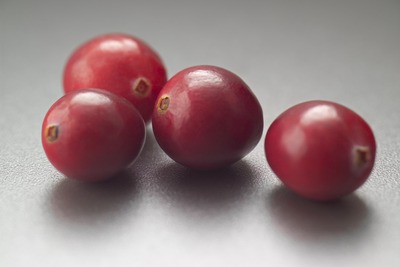Ocean Spray and Complete Phytochemical Solutions collaborate for improved of PAC testing
Monday, 30 January, 2012
Recognising a need for improving the current methods available for measuring and quantifying proanthocyanidin (PAC) levels in cranberries, Ocean Spray Cranberries and Complete Phytochemical Solutions have joined forces on a project to develop a cranberry-specific PAC standard.
Cranberries apparently contain A-type PACs that are effective in reducing E. coli bacteria adhesion to the walls of the urinary tract, with 36 mg being the minimum effective dose recommended.

According to a press statement released by Ocean Spray, the two colorimetric methods currently used to measure PACs can give quite different results. The DMAC method bases its quantification on the use of the Procyanidin A2 standard dimer (a polymer with a chain length of 2). However, this method can underestimate the PAC content in products that are enriched in PACs of different sizes and lengths, with degrees of polymerisation from 2 to 8 up to >10.
Using the current analysis methods, varying processing techniques can lead to variations in PAC composition. The industry is calling for an improved method to provide product-specific quantification for compounds in natural products like cranberries.
Tom Jones, senior manager of business development with Ocean Spray said:
“We are committed to supporting scientific research on the health and wellness benefits of cranberries and have made this investment to support the industry’s quest for a solution to the longstanding debate on PAC measurement. An improved, standardised method will add further scientific validation to our high quality, innovative ingredient portfolio as well as establish an industry-wide standardised testing methodology.”
In order to establish correct dosage guidelines for consumers, a method that delivers accurate analysis of PAC content in cranberry products is vital. Ocean Spray also believes it is essential for monitoring the efficacy and shelf life of dietary supplements and standardising test materials for research.
Ocean Spray and Complete Phytochemical Solutions are confident that their research will benefit many players in the cranberry industry.
“Since DMAC is now considered to be the industry standard method, we are committed to improving its accuracy for all cranberry products by developing a more robust, commercially available cranberry PAC standard,” said Amy Howell, an associate research scientist at Rutgers University and project team member. “We anticipate this new methodology will provide more confidence for suppliers, consumers and regulatory agencies in the assessment of PAC content which will have a significant impact on the cranberry industry”
Finding ways to preserve food quality and ensure food safety
A US study has developed a framework for food processors to preserve quality and maintain food...
Salty snack study: does size matter?
Food scientists have suggested that the size of individual salty snacks could have an effect on...
Meaty mould: could it be the smart food of the future?
While a mould patty burger doesn't sound too appetising, fungi is being explored as a...












